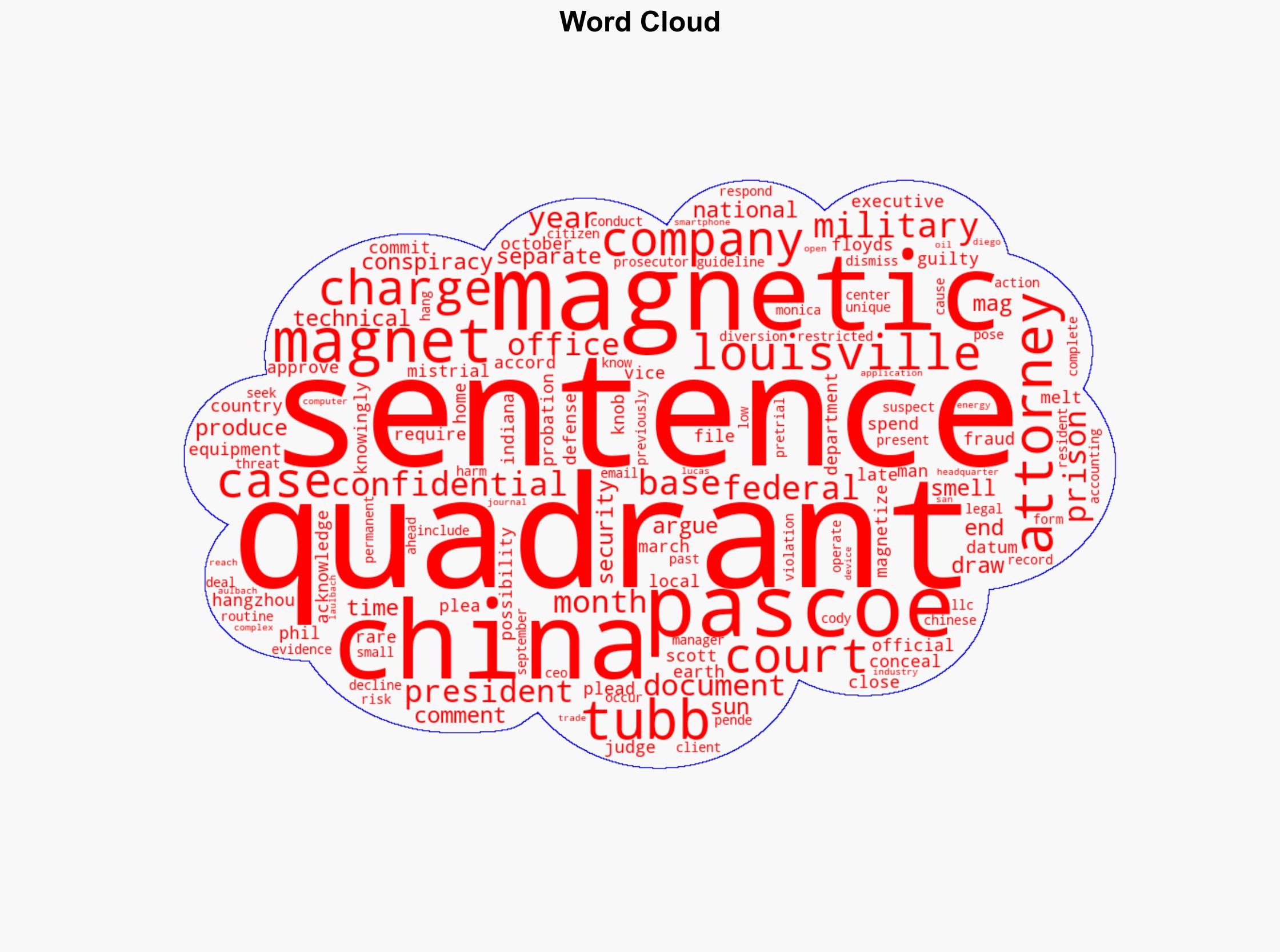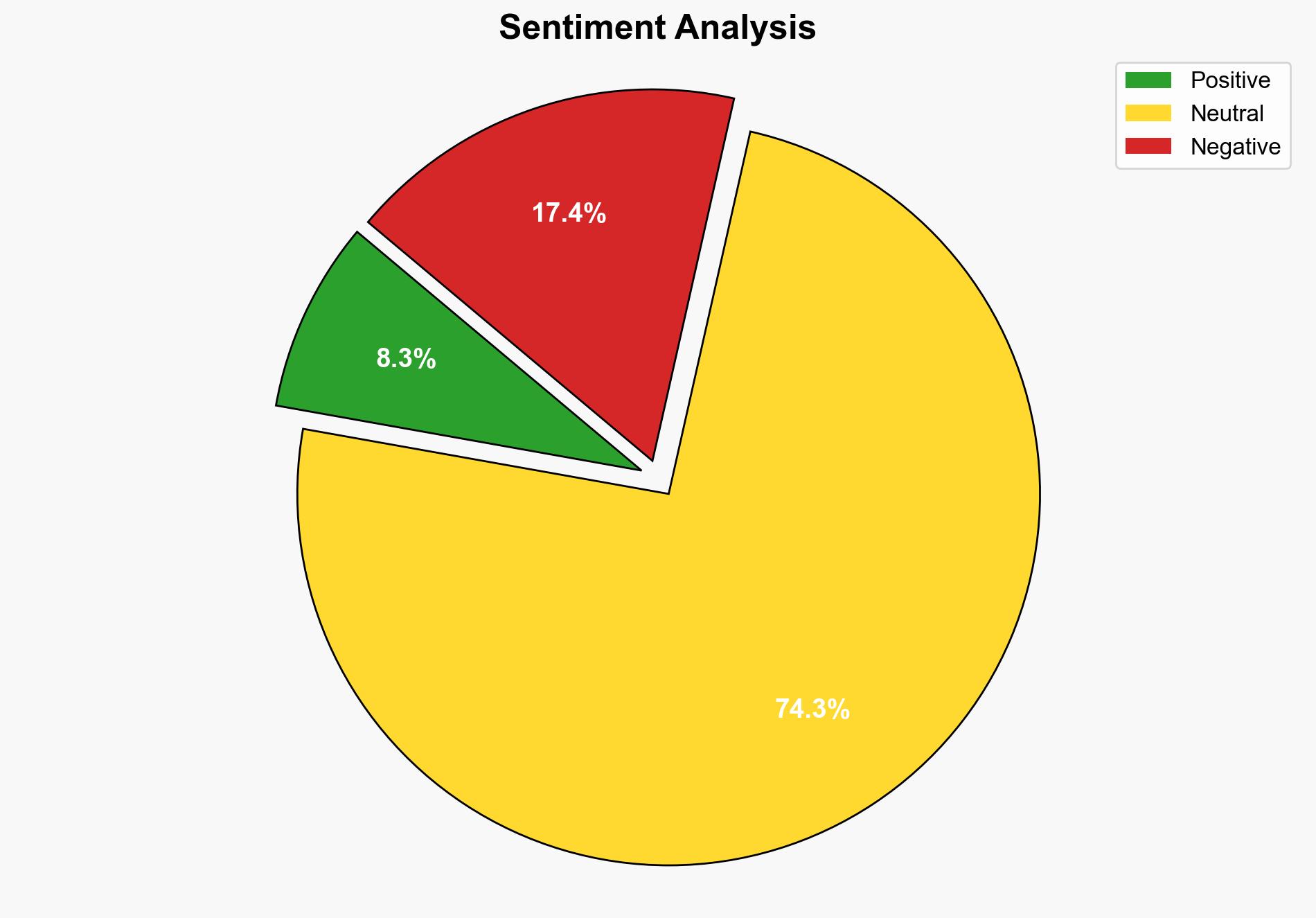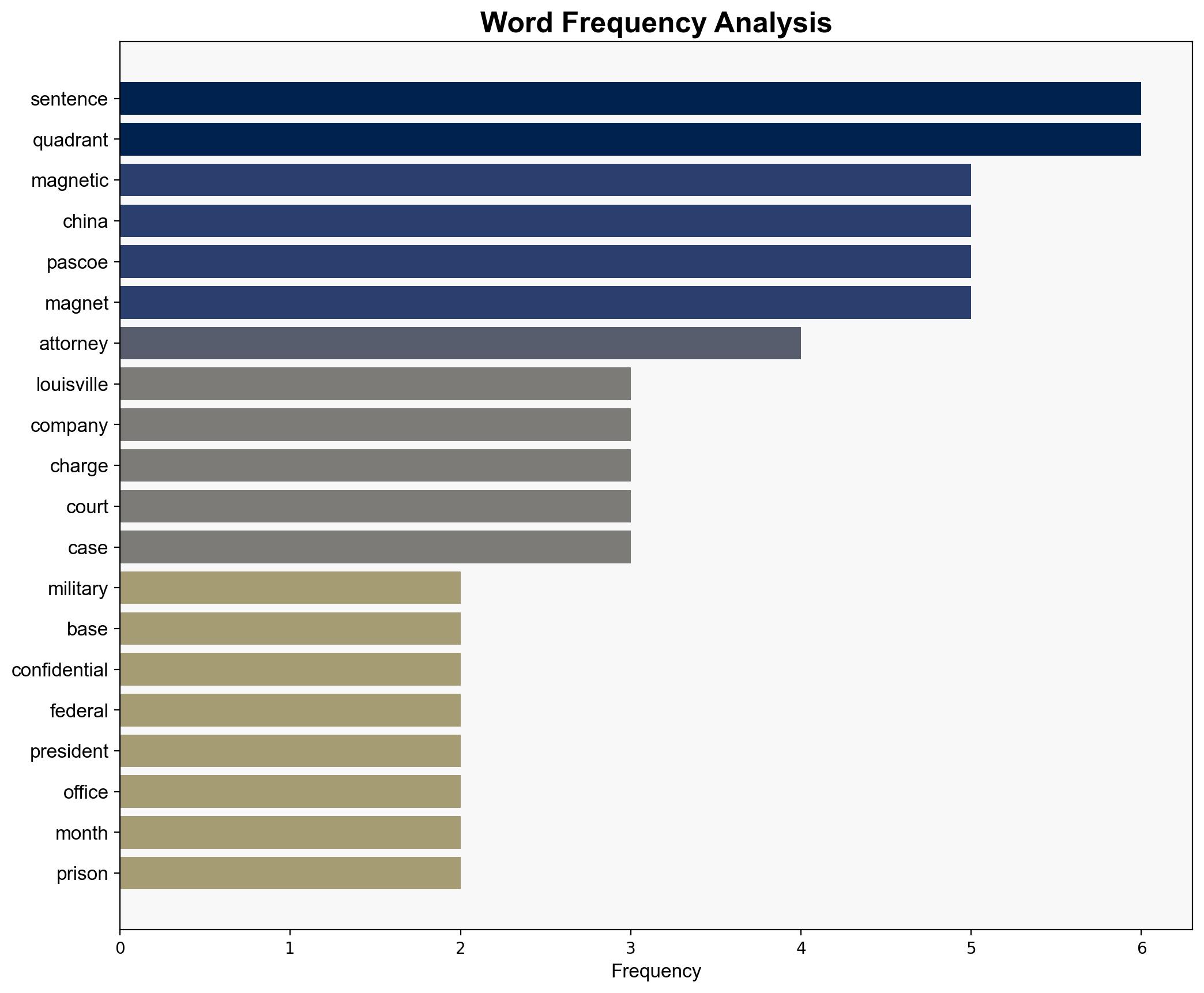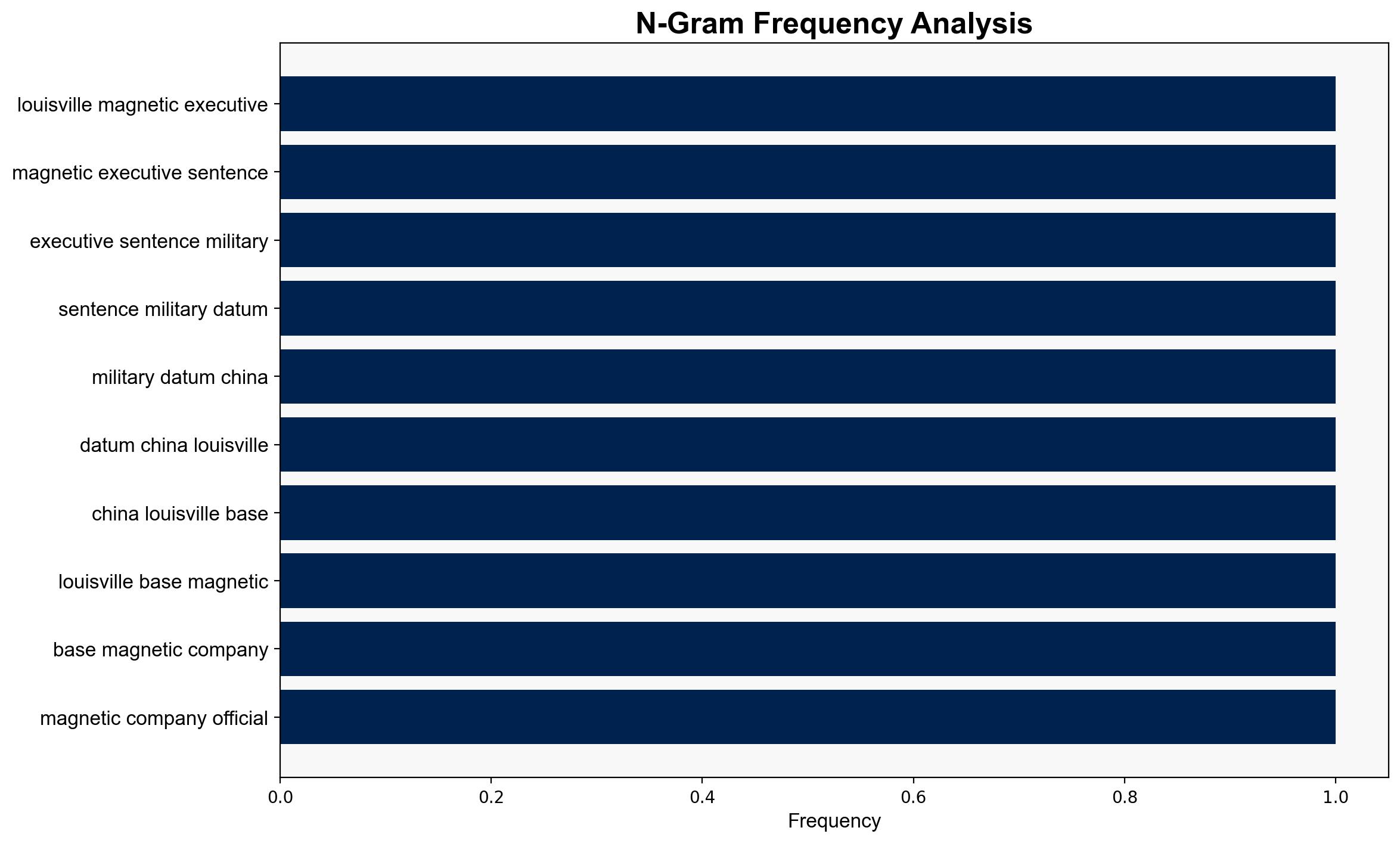Former Louisville magnetics executives sentenced for giving military data to China – Courier Journal
Published on: 2025-11-03
Intelligence Report: Former Louisville magnetics executives sentenced for giving military data to China – Courier Journal
1. BLUF (Bottom Line Up Front)
The most supported hypothesis suggests that the transfer of military-related technology to China was a deliberate act of economic espionage, facilitated by systemic vulnerabilities in corporate oversight and compliance. Confidence in this assessment is moderate due to limited information on the intent and broader network involvement. Recommended action includes enhancing corporate compliance frameworks and international collaboration to monitor and prevent technology transfer to adversarial nations.
2. Competing Hypotheses
1. **Deliberate Economic Espionage**: The executives knowingly engaged in transferring sensitive military technology to China, motivated by financial gain or coercion.
2. **Inadvertent Compliance Failure**: The transfer was a result of inadequate corporate oversight and compliance mechanisms, without malicious intent.
Using the Analysis of Competing Hypotheses (ACH) 2.0, the first hypothesis is better supported by the guilty pleas and the acknowledgment of knowingly sending confidential data. However, the absence of direct evidence of harm or intent to compromise national security slightly supports the second hypothesis.
3. Key Assumptions and Red Flags
– **Assumptions**: The legal proceedings and guilty pleas imply intent, but do not explicitly confirm espionage motives. The assumption that all parties involved had full knowledge of the implications of their actions may overlook potential coercion or misinformation.
– **Red Flags**: The lack of detailed evidence on the nature of the magnets and their specific military applications raises questions about the severity of the breach. The involvement of a Chinese citizen and the company’s ties to China suggest potential for broader espionage networks.
4. Implications and Strategic Risks
The incident highlights vulnerabilities in supply chains and corporate compliance, posing risks of technological leakage to adversarial nations. This could lead to enhanced military capabilities for China, affecting global power dynamics. The case may also prompt stricter regulatory scrutiny and impact U.S.-China trade relations, particularly in technology sectors.
5. Recommendations and Outlook
- Enhance corporate compliance and oversight mechanisms, particularly for companies dealing with sensitive technologies.
- Strengthen international partnerships to monitor and prevent unauthorized technology transfers.
- Scenario Projections:
- **Best Case**: Improved compliance prevents future incidents, maintaining technological superiority.
- **Worst Case**: Escalation of espionage activities leads to significant technological and military disadvantages.
- **Most Likely**: Incremental improvements in compliance and oversight reduce but do not eliminate risks.
6. Key Individuals and Entities
Phil Pascoe, Scott Tubbs, Monica Pascoe, Hang Sun (Cody Sun)
7. Thematic Tags
national security threats, cybersecurity, economic espionage, U.S.-China relations




